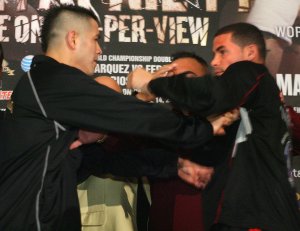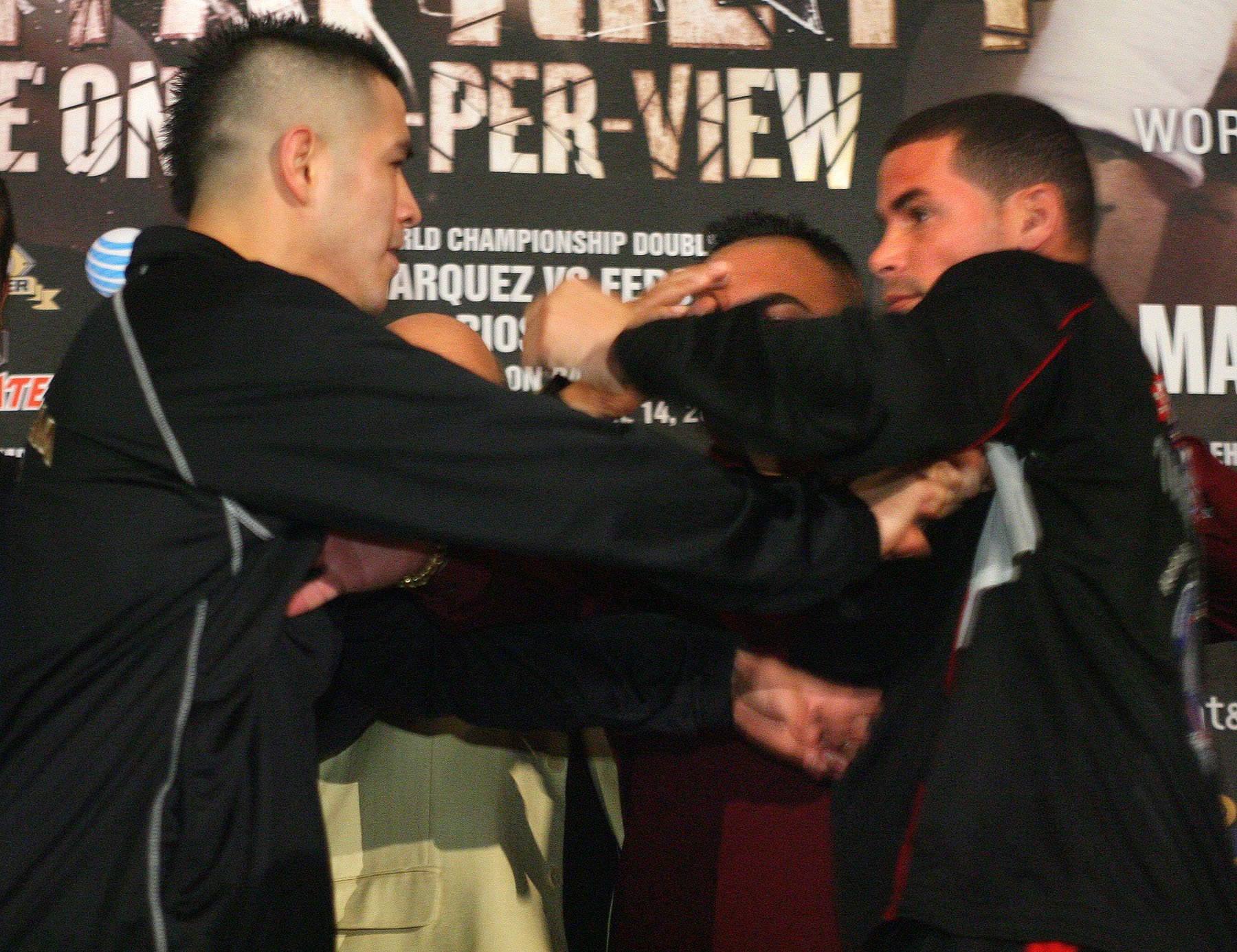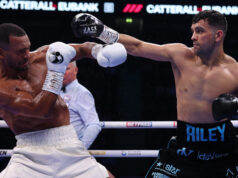One Theory on The Terrible Decisions in Boxing Lately
I can offer only one alternative theory other than people are being paid off. Judges perhaps score fights while considering what is financially better for boxing and the jurisdiction where they preside. Subconsciously, they’re more hesitant to score against a fighter whose success helps the sport–in their particular area and for the whole of boxing. Let me explain.
Say you’re a judge in Vegas. The city is not at an all-time high to say the least. Maybe that makes judges leery to rule against a guy who puts tails in seats. After all, when is the last time you saw the least marketable fighter in a fight win a BS decision?

Judges have vested interests other than outright payouts to see the sport do well. Boxing itself is suffering. Las Vegas is suffering. Could this make a judge score rounds for the wrong guy, if that wrong guy is helping buoy a sagging sport and a local economy? Seems reasonable to me. Sort of.
Surely, Las Vegas wants Top Rank to continue putting on big shows in town. It puts people to work. It gets people in the casinos. A host who really covets a guest is likely to go above and beyond to make that person happy. It’s not so much that you’re being corrupt. You just start doing things differently and on an unconscious level.
If you have a celebrity coming to your house for a little party, you might find out what he likes to eat, what kind of booze he drinks, or what type of music he enjoys. You don’t really do that for old Joey or Frankie. But then this celebrity shows up and you’re suddenly falling over yourself like he’s the ruler of Zamunda.
Transfer that sentiment to the Nevada Commission. You’re a judge. You’re in boxing circles and you know boxing people. Being a judge in boxing matches is the only time in your life where you can be somebody. Your judging career is predicated on the sport of boxing staying alive, as well as your city thriving. Maybe you start to think like the guy who is having a famous person over to his house. Being that it is usually obvious who the promoter wants to win, that’s who you are more inclined to vote for in the event that a round is even vaguely close.
Voting against the more marketable fighter is just harder to do when you live in Vegas and see less big cards being held, more bums on the street on your way to the arena, and constant headlines about how the city is in trouble. Then you’re sat at ringside and told to be totally objective and maybe it’s harder than it seems.
Look what is happening in Texas. It wasn’t too long ago when you didn’t see a lot of big fights taking place in Texas. But in recent years, we have seen more and more meaningful fights in the Longhorn State. During that time, Texas has rightfully gained a reputation as a good place to go for promoters if you want to preserve your meal ticket. The “house fighter” seemingly always wins in Texas.
And now we see a slew of big fights scheduled in Texas all of a sudden. You’d think it was the new Atlantic City. Bet your bottom dollar that promoters have taken notice that the more marketable fighter just so happens to win every decision in Texas.
If every time a single guy went to a bar, he brought a lady home, would he stop going to that bar?
A judge in Texas might be thinking along the lines of not rocking the boat. You see promoters increasingly putting on big shows in your state. Maybe you even managed to notice that it is potentially tied to the fact that the promoter’s pretty-boy always wins. It can mess with your mind as a judge. Scoring for the unknown fighter becomes almost an act of rebellion. Rock the boat and you might start getting some strange stares at commission luncheons. You might see you’re working less main events. You might go from scoring fights on HBO to judging fights at the Armory. Isn’t it normal to want to be part of the “in-crowd?”
So while judges may not be swayed by payoffs, their objectivity is corrupted. Instead of emotionlessly scoring a fight, they’re carrying around too much baggage. They’re not supposed to be caretakers of the sport’s profitability or looking out for their state’s stature in the sport. But in a time of a waning economy and erosion of the sport’s popularity, it is somewhat human to be bound to those sentiments.
There is part of me that wants to believe that the days of back-room dealings and envelopes stuffed with cash are over. The corruption is on a more institutionalized and unspoken level now. It might seem crazy to think that judges are turning in jacked-up scorecards out of a love for the sport or their city. If they were really looking out for the sport, why not just score a fight properly?
I’m just throwing a theory on the wall to see if it sticks. I feel that it’s such slim pickings with big boxing cards these days that the urge to please the promoter has crept into the minds of judges and contaminated the scoring of fights. And rather than it being corruption in a payoff kind of way, it’s coming from a more human place. The need to please. Looking out for your people. Keeping the gravy train rolling.
Then again, corruption is corruption. Ask the many fighters who have recently been victimized and they’ll tell you. Showing how it happened exactly is impossible to prove. All they know is that they got screwed.











